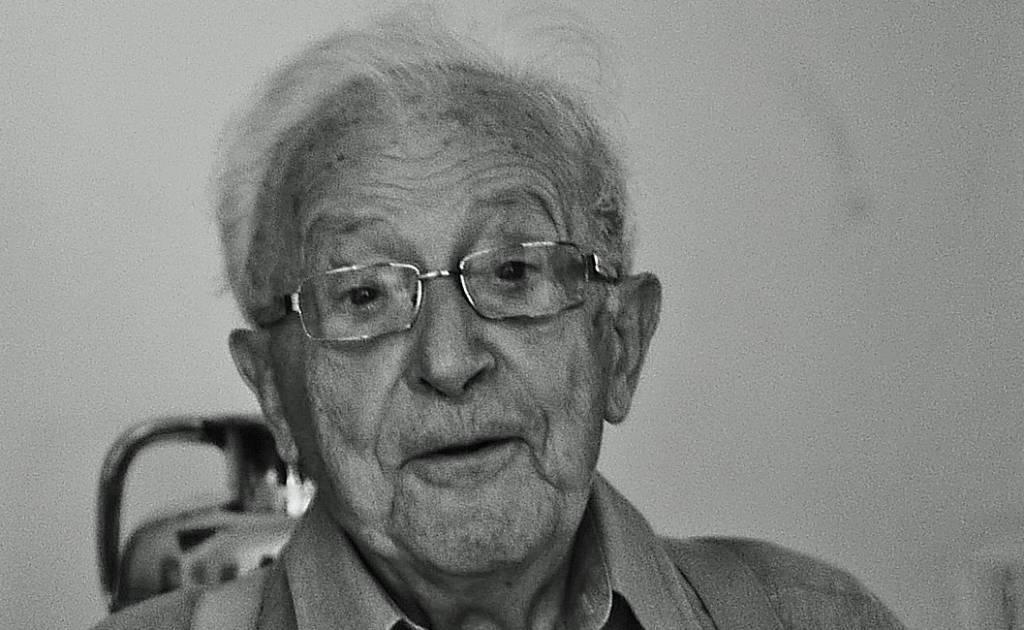Henri Maître (1923-2021)
23.02.2021
The sad news has reached us from Savoy that our friend, Henri Maître, president of the Association de Savoie des déportés, internés et familles des disparus – Aix-les-Bains, died on 19 February 2021.

Henri Maître was an extraordinary person, someone whom we came to know as both warmhearted and strong. Maître was born in 1923 near Nice. After finishing school he trained there as a precision engineer and subsequently went to work in the aviation industry in Vénissieux. Following the German Wehrmacht’s entry into France, Henri, like his brothers – Maurice, the youngest, was murdered by the Gestapo at the age of 17 – took up the struggle against the National Socialists. Taking ‘Émile’ as his nom de guerre, Henri joined the Résistance in Savoy. In January 1944 his group was betrayed and arrested. After being tortured, Henri was deported first to the Compiègne camp and then, as a ‘Night and Fog’ prisoner, to the Mauthausen concentration camp.
In April 1944 he was finally transferred to the Gusen concentration camp, where he was forced to work in aircraft production for the Messerschmidt company. In spite of the threat of a death sentence, he constantly sought to undermine the production of military equipment through sabotage. Shortly before liberation he was transported back to Mauthausen, where he caught typhus and nearly died from it at the age of 21. Utterly emaciated and extremely ill, he was finally taken to a Paris sanatorium.
After his recovery, Henri returned to Les Couleurs, the place where he had been active in the Résistance – and where he had met the woman who would later become his wife. Henri Maître remained active until his death and also gave his support to the Mauthausen Memorial. In connection with work on the ‘Memorial Book for the Dead of the Mauthausen Concentration Camp and its Subcamps’ he wrote:
‘This is the message that I wish to leave behind, this is the message that I carry within me and offer to those who wish to hear it as the legacy for posterity of a deportee and a witness to the most terrible barbarity in the history of humanity. The victims of the resistance must never be forgotten – the men and women we have to thank for rediscovering our most valuable possession: freedom. The suffering of those deported must never be forgotten, or the cruelty they were subjected to by Nazi madness. Dictatorships still present the greatest threat to humanity today because modern technology offers them ever more refined tools of mass extermination. The dark reality of the concentration camps must serve as the basis for a change of what it is to be human; it is important to understand that respect for other people comes before all else, and that nothing exists if there is not also love for one’s neighbour. Only love is eternal and indestructible: it alone should direct human behaviour and grant us constant vigilance, so that across the planet we may all live with our spirit intact.’
We mourn the loss of Henri Maître. Our particular thoughts are with his family.
Ralf Lechner for the Mauthausen Memorial